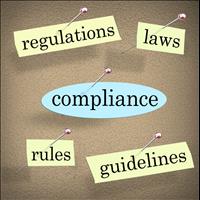
The U.S. Department of Labor recently amended the definition of spouse under the Family and Medical Leave Act (FMLA) to cover more same-sex marriages. Previously, a “place of residence” rule was followed, meaning that the law of the state where the employee resides governed. If that state did not recognize same-sex marriages, the employee was not eligible for FMLA to leave to care for a same-sex spouse.
Now, a “place of celebration” rule is followed so that the law where the couple was married determines spousal status under FMLA. An employee is eligible to take leave under FMLA to care for a same-sex or common-law spouse if the marriage was entered into in a state that recognizes such marriages, or if the marriage was entered into outside of the United States and is valid in the place where entered into and could have been entered into in at least one state. The new rule also expands FMLA leave to employees seeking to care for a stepchild or stepparent related to the employee through same-sex marriage.
The FMLA provides unpaid, job-protected leave for specified family and medical reasons with continuation of group health insurance coverage as if the employee did not take any leave. Eligible employees are entitled to 12 workweeks of leave in a 12 month period. Qualifying events include the birth or adoption of a child, caring for a spouse, child, or parent who has a serious health condition, or treating the employee’s own serious health condition that makes the employee unable to perform the essential functions of his or her job.
Generally, the FMLA only applies to private-sector employers with 50 or more employees (public agencies, including government agencies, are bound by the FMLA regardless of how many employees they have). Employees are usually eligible to take FMLA to leave if they have worked for the employer for at least 12 months and have at least 1,250 hours of service for the employer during the 12 month period immediately preceding the leave.
If your employees are eligible for FMLA, be sure to amend your employee handbook and train your managers on the new rules.





